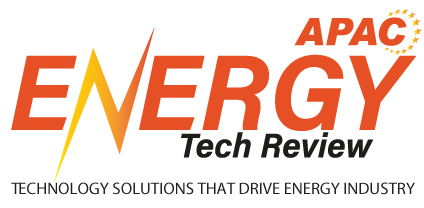Through this article, John Frankel, founding partner at ff Venture Capital, discusses how recent advancements in materials and AI are driving a rapid clean energy transition. He highlights the expected surge in energy sector investments and underscores the importance of energy efficiency innovations. Frankel predicts a new investment wave focused on enhancing efficiency through AI, offering significant opportunities for growth.
Multiple forces, including climate change concerns and government mandates, have created significant investment opportunities in the eco-renewable sector over the past few decades. Though there have been significant advancements in this sector until now, with the recent rapid advancement of materials technologies and AI capabilities, we are on the doorstep of substantial innovation and impact on a global scale. This time, much of the investment is less capital-intensive and more software-intensive.
Energy remains the most significant industry sector, generating over $6tn in revenue annually. McKinsey forecasts that investment in this sector will rise sharply from $1.5 trillion today to $3.2 trillion by 2040. Certain emerging AI technologies within this vast energy space, which are not yet widely known, can provide significant advantages and impacts for innovative eco-renewable companies.
In addition, the energy demands from the deployment of AI are changing the industry's long-term demand assumptions, forcing a rapid change in generation and transmission across the USA.
Our core thesis is that the most impactful energy is never generated. Accordingly, technologies that enhance the efficiency of energy generation or consumption and capture, store and reuse energy can deliver substantial and impactful returns.
 Over the past thirty years, massive investments have been engaged in low-carbon energy generation. These investments include the deployment of new renewable energy production capacities, electrifying transportation (not just electric vehicles) and hydrogen and carbon capture projects. For instance, the global investment in clean energy for 2023 is estimated at $1.77T, according to the Bloomberg NEF report, representing a 17 percent increase over 2022. The breakdown of these expenditures is illustrated in the following chart:
Over the past thirty years, massive investments have been engaged in low-carbon energy generation. These investments include the deployment of new renewable energy production capacities, electrifying transportation (not just electric vehicles) and hydrogen and carbon capture projects. For instance, the global investment in clean energy for 2023 is estimated at $1.77T, according to the Bloomberg NEF report, representing a 17 percent increase over 2022. The breakdown of these expenditures is illustrated in the following chart:
Source: Bloomberg NEF.
Electrified transport, new renewable energy capacity and grid investments are the three main areas of investment efforts. Energy efficiency investments are primarily included in the clean industry section, which covers a wide range of initiatives, from electrifying industrial processes to replacing coke with hydrogen in the metallurgy industry.
Energy efficiency is the process of reducing the amount of energy required to deliver a given product, service or process without changing the output's quality or function. As consumers, you have already encountered examples of energy efficiency: replacing traditional light bulbs with LEDs that provide the same brightness, using new electrical appliances that are more accurate and sophisticated yet consume less energy and flying on modern planes that use 50 percent less fuel per mile compared to those from 50 years ago, etc.
There are numerous sources of efficiency improvements: rethinking production processes to make them smarter (eliminating bottlenecks and redundancies, parallelizing tasks, scheduling tasks more intelligently), using new materials or machines, insulating buildings, monitoring buildings and factories to better align services with actual needs, etc.
Despite its potential, efficiency is the most underrated strategy by the investor community and major players in the energy and sustainability industries. However, it holds significant promise for innovation, investment prospects and returns. In this document, we will explore the technological disruptions and investment opportunities that energy efficiency offers and how it intersects with artificial intelligence (AI).
"With recent advancements in materials and AI, we are on the brink of transformative innovations in the eco-renewable sector. The next wave of investment will focus on energy efficiency, leveraging these technologies to optimize energy use and achieve substantial returns."
The IPCC estimates that a third of the global effort toward carbon neutrality will come from energy efficiency. However, current investments and deployment in energy efficiency need to catch up to those in green energy generation and storage. The first wave of public and private investment in the eco-renewable sector focused heavily on startups working on energy production sources like solar panels, wind turbines and hardware for integrating renewables with the grid. A decade ago, the industry experienced a second wave of investments focused on storage solutions (batteries, hydrogen) and mitigation technologies (carbon capture). A third wave of investments and emerging technologies is about to start, will be energy efficiency-driven and will heavily rely on AI solutions.
Investors have a clear opportunity to capitalize on this wave, as companies will increasingly demand the products and services developed by startups in this field.












